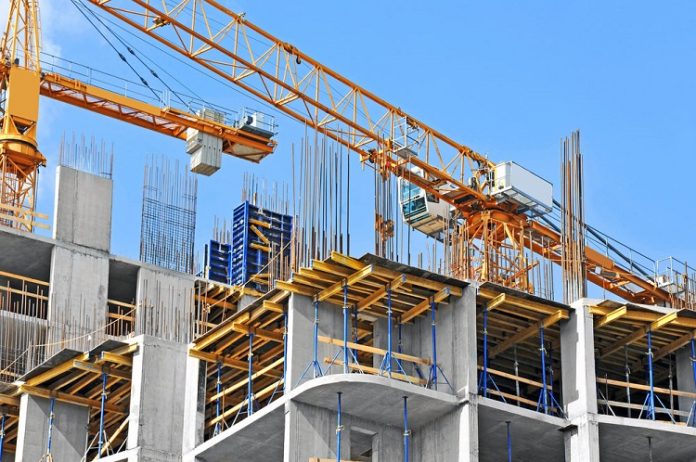The construction sector is losing its patience with Brexit uncertainty, according to Q2 2019 RICS Construction and Infrastructure Market Survey, as workloads for social housing construction rises.
This quarter, 16% more respondents reported an increase in construction workloads, up from a +9% net balance in Q1. Workloads in public housing grew at the fastest pace, closely followed by private housing. The rise in workloads in social housing (+26% up from +6%) suggests that the lifting of the HRA borrowing cap may have begun to influence sentiment in social housing construction, according to RICS’ construction and infrastructure survey.
After a dip in Q1 2019, workloads in the infrastructure sector improved in Q2 and there was also modest growth in commercial and public non-housing activity. Looking to the year ahead, workloads are expected to be most resilient in the private housing and infrastructure sectors with 27% and 25% more surveyors, respectively, anticipating activity to rise rather than fall.
Business enquiries for new projects or contracts continued to bolster this quarter as 12% more respondents of the construction and infrastructure survey reported an increase rather than a decrease over the past three months – unchanged from Q1.
However, capacity continues to constrain potential activity with 38% more surveyors having to increase headcount in the past three months to support new work, despite the ongoing recruitment challenges.
Within infrastructure, the energy, rail and communications subsectors are expected to see the strongest expansion in output over the coming twelve months. However, despite the potential of additional Government spending, nearly two-thirds of respondents were of the view that infrastructure projects will stall without access to funding from the European Investment Bank.
Despite the continued Brexit uncertainty, the RICS market confidence indicator – a composite measure of workload, employment and profit margin expectations over the coming twelve months – rebounded to 21% (from 13% in Q1).
Investments related to equipment, software and worker training are expected to gather pace as well, according to the construction and infrastructure survey. However, for the fourth consecutive quarter, profit margin expectations remained flat and tender price expectations eased.
Jeffrey Matsu, RICS senior economist, commented: “Three years on and the long, unrelenting shadow of Brexit uncertainty is testing the mettle of the construction industry. After a prolonged period of delays and underinvestment, businesses now appear to be fed up and are proceeding cautiously with new hiring and intentions to invest.
“While much of this is likely to be backfilling or maintaining existing capacity, the requirements of larger projects such as Hinkley Point C and HS2 are constraining growth opportunities elsewhere. With the range of possible outcomes related to Brexit as wide as ever, we expect to see continued volatility in the construction output data but in the meanwhile foresee workload activity stabilising.”



